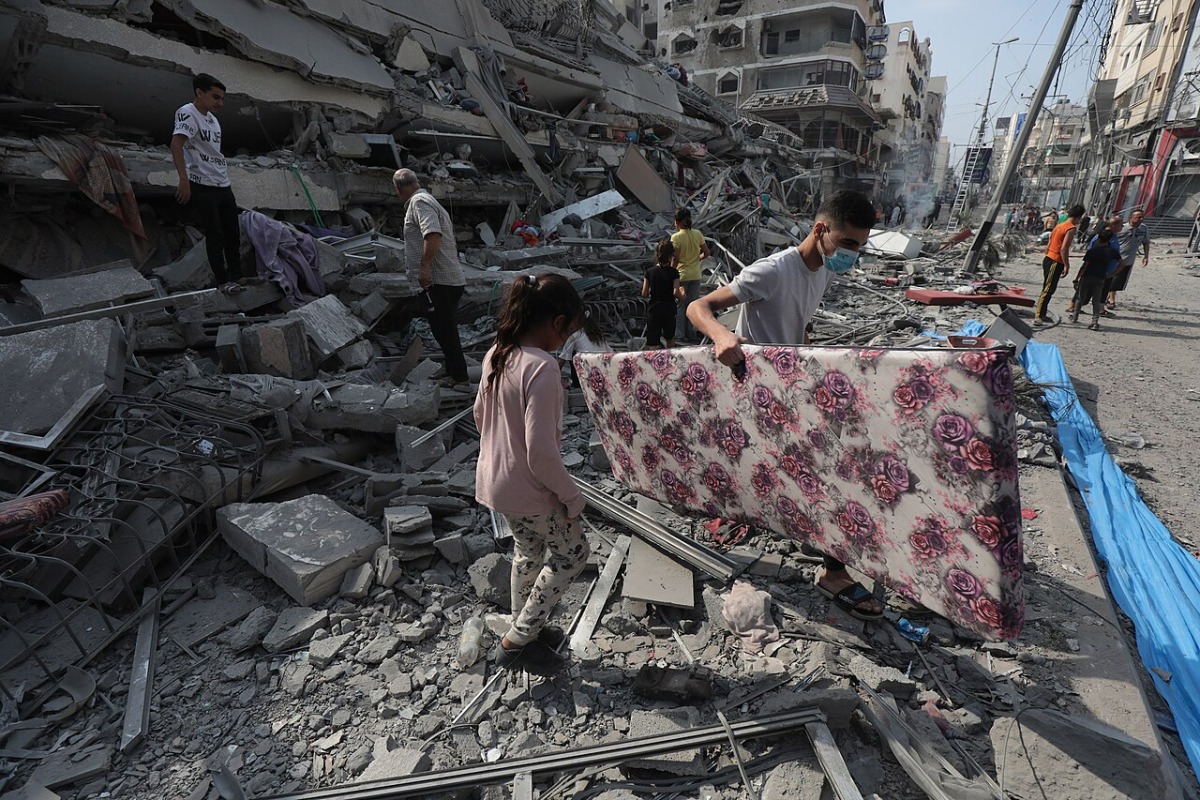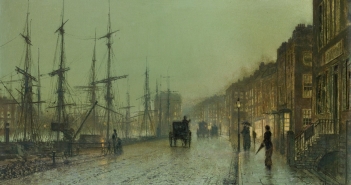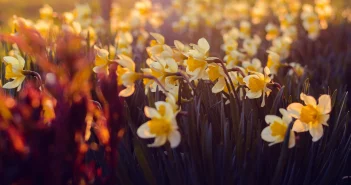TEL AVIV – SEPTEMBER – 2023
Noah Artowski, by now a six-year veteran of the Israeli Defence Forces, looked out towards the azure, glimmering sea. He imagined it melting like water colour into the blueness of the sky. He stood on the balcony of his aunt Sarah’s apartment in Tel Aviv, where she lived alone with her two dogs. His hands rested on the warm metallic bar as he became trapped in the sea’s embrace. How beautiful the sea, alive in the sunshine, beyond the human ways of things. He knew that it would live on, unaware of death, even to the end.
“Would you like tea or coffee? Or perhaps something stronger?” It was his day off.
“Coffee please.” He said with a smile, and when it arrived he lit a cigarette and took a drink, savouring both flavours simultaneously, stoking the warmth of the morning like bellows on a midnight fire.
“A beautiful day’ he said sitting down on the balcony chair, and his eye caught the sea again.
“Yes.”
“I’ve got something to show you” said Sarah. Her dogs followed her inside and back out onto the balcony where she placed a shoe box on the table.
“I found this box of photographs when we were cleaning out Grandma’s house. Take a look, there are some interesting ones.’ Noah took the lid off the box and gathered the photographs in his hands. The first one was taken in the 1980’s judging by the fashion of the clothes, and was in colour. It showed his mother and father smiling on their honeymoon in Portugal. They looked happy. The next one showed his mother in military fatigues. He went on slowly flicking through the pile with his index finger. He came to an old photograph, black and white and faded. There was an old crease mark where it had once been folded away. He turned it over and saw ‘August 1939’ had been written on the back. He turned it around and stared at it for a while. It was a family portrait. The smartly dressed mother and father sat in chairs and in front of them their three daughters sat on the floor, all of them looking directly into the camera. As was the custom of those days, no one smiled.
“Who are they?”
“They are your Grandmother’s cousins. From Lodz.”
“Where is Lodz?”
“Poland.”
“Did……………………..” He paused. The sea had caught his eye again. Or perhaps it was the blue.
“They are all dead. They were sent to Dachau.”
“Yes, I remember. She told me. I haven’t seen them before. In a photograph I mean.” She thought about saying how sad it was, but the silence did the job for her. He looked intently at the photograph. Without any sense of urgency he studied each one of their faces, one by one. There was a kind of stoicism in their expressions. They had no idea what was coming. Looking at the photograph he didn’t feel the benefit of hindsight, but knowing what became of them, he was able at least to attempt to touch the lives within the picture frame. To connect somehow. He noticed that one of the little girls, the youngest one, was holding a bracelet made of pearls. She was the central point of the portrait. That she was holding the pearls in her hand seemed strange, in such an austere setting. Maybe she had began to play with it and neither the photographer or her parents had noticed. He looked closer and detected a twinkle in the little girls face as if she was indeed about to burst into laughter. He carried on looking at the photograph, particularly at the young girls face and the pearl bracelet that she held, captivated by the image. Then he thought about what became of her and her family. He looked back out to sea. The sun was beginning to set.
KHAN YOUNIS – GAZA – SEPTEMBER 2023
Heba, which means gift, stood up with her doll in her arms and followed her mother into the kitchen. It was the birthday of her older brother and members of her extended family, including her grandmother and her aunt had been invited over that evening to share a meal. When her uncle Meerab arrived he picked Heba up and took her out on to the balcony with her doll still firmly clasped between her arms. The sun was setting in the west and they looked out at the fire dance sea. There was suddenly no need for words.
“It’s like we’re in jail” said Meerab.
“How?” Said Heba.
“There is the sea and we’re not allowed to sail away on it. Can you think of another people who live by the sea and can’t sail?” Her silence was her answer.
“No. That’s alright. There is a lot your generation must learn about. About our people, our history.” Heba looked up at her uncle and then back out to sea. The sun had almost passed over the horizon.
Heba’s mother came out on the balcony to call them in for dinner. There were large bowls of maqlubeh and a plate stacked high with taboon, bottles of soft drinks and jugs of water. The family sat around the table and began to talk happily and freely. When they were together around the table as a family, eating and drinking and talking, they were free.
By the end of the meal however the conversation had taken a serious turn. That almost always happened at their dinner table when politics became involved. Meerab said the politics had been imposed and where politics is imposed, suffering always follows. Meerab had never left Gaza. He was now twenty-three years old. Every day he looked at the sea and wondered what lay beyond and as each year passed into another, Heba wondered the same. She was becoming the same as her uncle because she asked the same questions.
When the quarrel abated Heba’s Grandmother, who had been listening quietly to the whole conversation, began to speak.
“When I was a little girl, I lived in the mountains. We never saw the sea then. It was like it never existed. I was near Heba’s age when I first saw the sea. I remember when the soldiers came and told us to leave.” Suddenly, a distant expression, woven in sorrow, came over her face. Some memory too painful to linger on, entered her inner vision. She carried on speaking to sooth the memory away. “We travelled here to Gaza, my family, your grand-fathers family and many others. Almost our whole village came. I remember seeing the sea for the first time. It was beautiful.” She looked at Heba and remembered being her age. They smiled at each other, but Heba didn’t really know what they were smiling about. She thought it was the sea.
When the meal was done and the plates were being washed Heba’s grandmother called her over and sat her on her lap.
“I have something to give you.” Heba looked up at her grand-mother and smiled. She loved presents but she loved surprises more. She wondered what it could be. The old lady reached into the large side pocket of her dress and produced something in her open palm, showing it straight away to Heba. Heba looked down at the object and then looked up at her grand-mother.
“Here. It’s for you. I had it when I was a little girl and now it is yours. I want you to keep it. Maybe someday when you have a grandchild you can pass it on to them.” Heba looked down. There in her hands was a beautiful white bracelet made of pearls. It glowed and shined with equal beauty. She put it on her wrist and looked at it in admiration.
“Thank-you.” Said Heba. And they held each other for a while.
“There is an answer to all our problems in this part of the world. Sometimes I think no one has thought of it.”
“What is it?” Asked Heba.
“Love.”
OCTOBER 7th 2023 – TEL AVIV
Noah lay on the sofa in his apartment looking through the photographs that his aunt had entrusted to him. He was an early riser but had laid in bed for an extra hour that morning. He enjoyed coming in and out of dreams. They would usually evaporate like morning mist with the dawn alarm. That morning he had written the dream down immediately after he had woken up, slightly disorientated by its vividness. He had walked out of the gates at Dachau with the little girl in the photograph who held the pearled bracelet and as they passed out of the camp he woke up. They were holding hands as they left. Once he had written what he remembered of the dream down, he tried to fall asleep again and re-enter the dream. It didn’t work. He just lay there, staring at the wall.
He placed the photograph of his family, and the girl holding the pearl bracelet, on the floor. He sat up on the sofa and drank from his coffee cup. Then he took the television remote and turned on the television. It was the news. Bewilderment and fear. ‘Israel invaded by Hamas.’ ‘Many killed and captured.’ Noah sat there in his apartment with his mind in many places at once. His mobile phone buzzed and he picked it up off the coffee table. The message was from an old friend and simply read ‘Sons of Satan.’ Each lineament of thought continued on its path to the same conclusion. War.
The more information that filtered through on the news the more tense he became. With the kidnappings the anger turned to fury. Just after noon that day his mobile phone buzzed and he picked it up once again. It was the army. He was to report to duty the following morning.
OCTOBER 7th – KHAN YOUNIS.
Heba was woken by the sound of a barking dog below on the street. It was just after dawn. She got out of bed with her doll in her hand and walked out on to the balcony. There before her lay the great shining sea with all its mystery and secrets, and all its possibility. The sun was rising up over the land, warming the balcony by quick inches. Heba sat there with her doll, listening to the silence.
The morning warmed. Somebody in the kitchen turned the radio on. At first it was just a noise but as the newsreaders voice rasped, the words began to solidify, creating their own gravity, somehow filling the air with weight. The report was clear. Hamas had penetrated the fence border between Gaza and Israel. The death toll was unknown. Heba’s family gathered in the kitchen to listen to the radio reports coming through. A new dread fed them all. It didn’t even need to be spoken. Something terrible was about to be unleashed.
Heba’s mother took her by the hand and led her into her bedroom.
“Pack up your things. We may have to leave soon. She looked up and saw her father at the doorway with a look of worry on his face. She had never seen him scared before. His expression frightened her.
“What’s happening? Are we leaving?” Asked Heba.
“We may have to.” Said her mother.
“Don’t worry. Everything will be alright God willing.” Said her father and he smiled at her. The worry on his face had gone, even if only for a few moments. She smiled back at him. She took out the suitcase from under her bed and began to pack her things as her parents had asked. She left the pearl bracelet on her wrist.
DECEMBER 7th 2023 – KHAN YOUNIS
Noah opened his eyes and then shut them again, wondering where the edge of dreams lay. Then there was shouting. He rubbed his face and stood up. All notion of dreaming vanished as he saw his army fatigues hanging neatly at the end of his bed. He rubbed his face and stood up. He knew exactly where he was and what he was doing. This was the day his platoon was going to enter the city of Khan Younis in the south of Gaza. The north had already been laid waste.
The fear of death was on him. If there is a nature to war it must be that, death, fear and suffering. Except for those in charge. He knew that he was too young to die so well that he had stopped thinking about it. To think about death was to give into it. He sat down on the toilet and released his bowels and then had a quick cold shower. He looked into the mirror and felt ready for the mission. It was time to go.
His platoon moved slowly down the empty Gazan street. It was a waste land. As he looked around, images of Hiroshima came to Noah’s mind. The buildings skeletons, the people gone. It seemed the place was haunted. They walked on, ten feet apart, and came to a small square. This is what they had been trained for all those years. This was when they were told their soldiering would count. They were told it would be of value. Noah’s keen eyes scanned the square, up and down, south, east, north and west. There was no one there after the heavy bombing. The civilians had either left or were dead. The intelligence they had was that there may by some Hamas fighters left, likely in tunnels underground. That was the mission of his platoon, to flush them out and kill them.
Noah’s OC ordered him and three other soldiers to head west along the street that led out of the square for one block and to enter the building on the left side to see what they could find. Once it was secure they were to reconvene immediately at their present position. The soldiers took the order and left in single file moving cautiously along the street ready to fire in an instant. Slowly they went with guns raised, still ten feet apart, alert to the possibility of an ambush at any given moment. They entered the building by forcing a door. When they were inside Noah took the corridor which led to a courtyard at the back. Filled with trepidation he went along, now feeling the sweat on his face. He had to overcome the fear of being killed and of killing. He remembered why he was there. He took off his dark glasses and used the back of his shirt sleeve to dry himself. He couldn’t hear a sound on the bottom floor so he went on down the long passage way until finally he came to the end.
He put out his hand and opened the door. He suspected they were lying in wait for him outside. Vigilance was critical. He stepped out of the open doorway and stood still. The place had been virtually destroyed. His eyes tracked along the courtyard to the other side where a broken wall was still standing. His eyes carried upward where he saw a dead girl hanging from the wire at the top. The force of an exploding bomb had left her there. He stood motionless, his eyes and soul at odds. His eyes and his soul in conflict. His eyes and his soul falling. Tangling in the wire her hair fell backwards to the ground, almost parallel with her right arm. Her doll lay below her. Heba’s eyes were closed. He stood there looking. The colours on her dress becoming more vivid. Becoming brighter. His eyes followed down and there he saw the pearl bracelet on her wrist, undeniable. He remembered his relative, the little Polish girl. He swayed in sickness. The unfading beauty of the pearl bracelet seemed through his eyes to be pulsing with the life of us all. It passed through time, across generations, beyond the fathomless sea. He felt himself falling, falling slowly through the air, falling to the place where there is no light, and the end is only dreamt.




